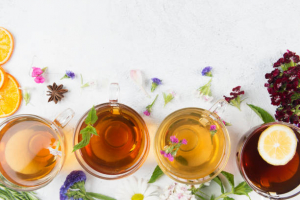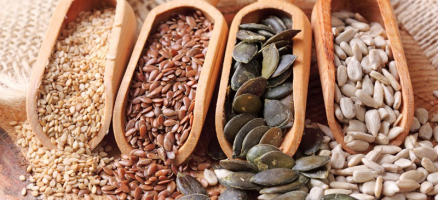Top 10 Healthy Herbal Teas You Should Try
Herbal teas have been around for hundreds of years. Herbal teas, despite their name, are not genuine teas at all. True teas, such as green tea, black tea, and ... read more...oolong tea, are made from the Camellia sinensis plant's leaves. Herbal teas, on the other hand, are brewed from dried fruits, flowers, spices, or herbs. This implies that herbal teas may be made in a variety of flavors and tastes, making them an appealing alternative to sugary beverages or water. Some herbal teas contain health-promoting characteristics in addition to being tasty. Here is a list of the best healthy herbal teas you’ll want to try.
-
Chamomile tea is well-known for its relaxing properties and is regularly used as a sleep aid. Two research looked at the impact of chamomile tea or extract on human sleep difficulties. In one research of 80 postpartum women with sleep problems, drinking chamomile tea for two weeks improved sleep quality and reduced sadness symptoms. Another research of 34 individuals with insomnia revealed that consuming chamomile extract twice a day improved waking up throughout the night, time to fall asleep, and daily functioning. Furthermore, chamomile may be more than just a sleep aid. It's also thought to have antibacterial, anti-inflammatory, and liver-protective properties.
Preliminary research suggests that chamomile may help treat diarrhea and stomach ulcers in mice and rats. Another research revealed that chamomile tea decreased symptoms of premenstrual syndrome, while another found that it improved blood glucose, insulin, and blood lipid levels in persons with type 2 diabetes. While further study is needed to validate these findings, early data shows that chamomile tea may provide a number of health advantages. Some herbal teas contain health-promoting characteristics in addition to being tasty. Herbal teas, in fact, have been used for hundreds of years as natural cures for a range of maladies.
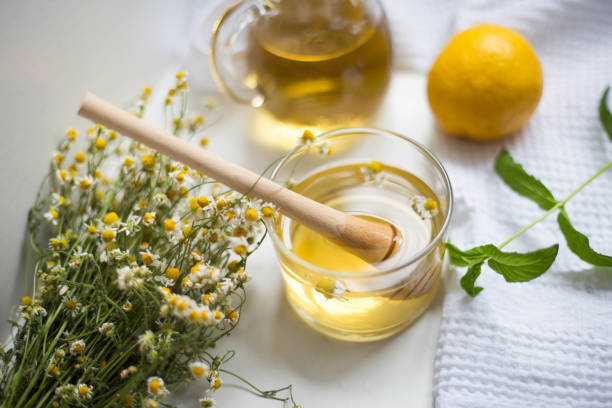
Chamomile Tea 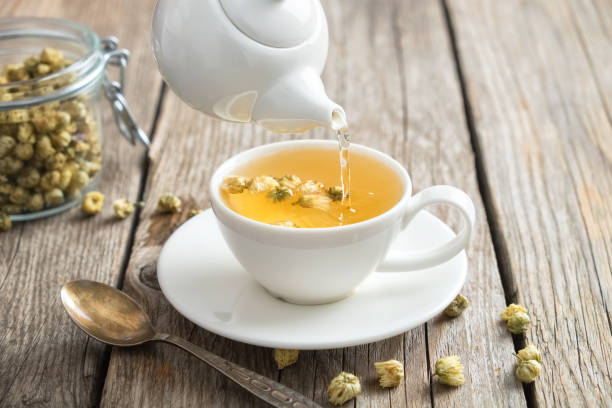
Chamomile Tea -
Peppermint tea is one of the world's most popular herbal teas. While it is most commonly used to help with digestive health, it also possesses antioxidant, anticancer, antibacterial, and antiviral effects. Because most of these effects have not been researched in people, it is impossible to say if they may have health advantages. Several studies, however, have validated peppermint's digestive-health benefits.
Several studies have indicated that peppermint oil mixtures, which frequently incorporate additional herbs, can help reduce indigestion, nausea, and stomach discomfort. Peppermint oil is also good for relaxing spasms in the intestines, esophagus, and colon, according to research. Finally, research has shown that peppermint oil is excellent at alleviating symptoms of irritable bowel syndrome. As a result, if you are experiencing digestive pain, such as cramps, nausea, or indigestion, peppermint tea is an excellent natural cure to consider.
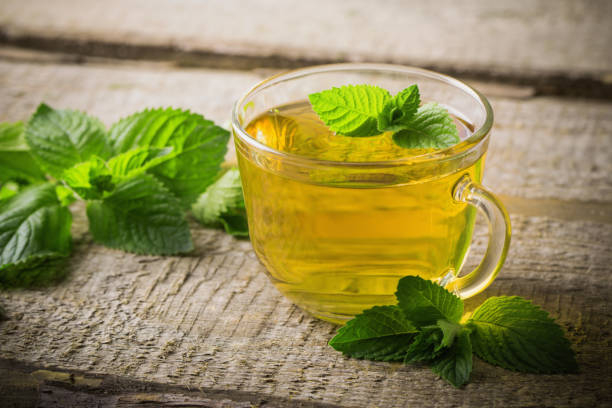
Peppermint Tea 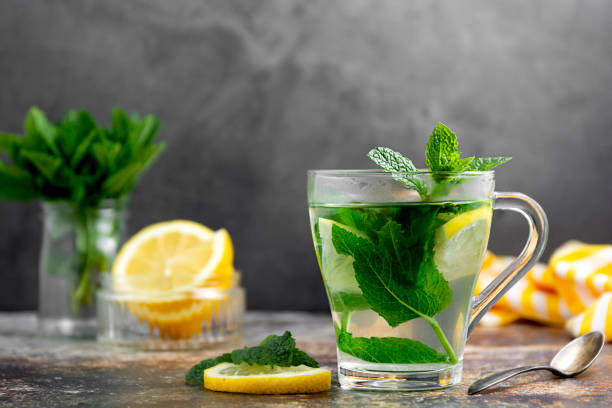
Peppermint Tea -
Ginger tea is a spicy and tasty drink that is high in antioxidants that fight illness. It also fights inflammation and boosts the immune system, although it's most recognized for being an excellent nausea treatment. Ginger has been shown in studies to be useful for relieving nausea, particularly in early pregnancy, but it may also ease nausea caused by cancer treatments and motion sickness. Ginger may also help prevent stomach ulcers and ease indigestion or constipation, according to research.
Ginger may also aid in the relief of dysmenorrhea, or period discomfort. A lot of studies have revealed that ginger pills can help with menstrual discomfort. In fact, two trials found ginger to be just as efficient in relieving period pain as nonsteroidal anti-inflammatory medications (NSAIDs) like ibuprofen. Finally, some research shows that ginger may have health advantages for diabetics, but the data is inconsistent. Ginger supplements were reported to aid with blood sugar management and blood lipid levels in several trials.
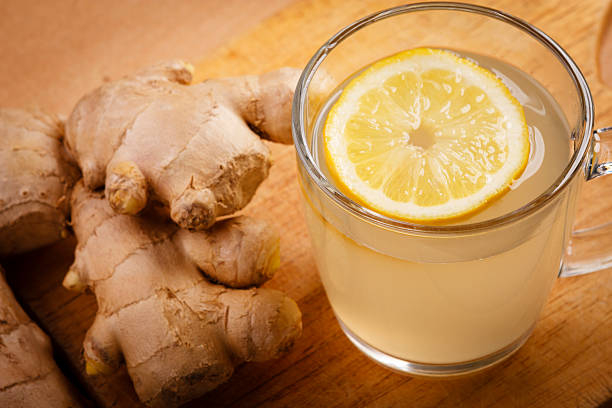
Ginger Tea 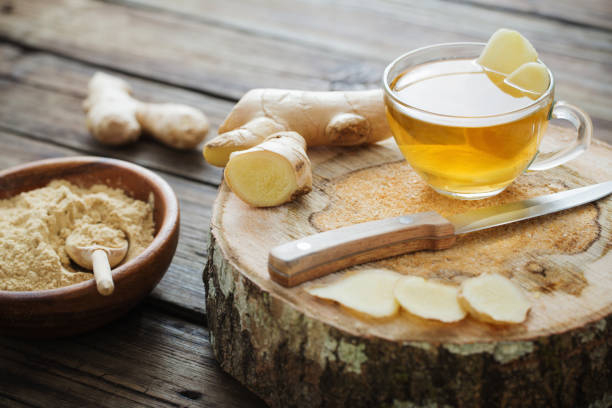
Ginger Tea -
Hibiscus tea is prepared from the hibiscus plant's vibrant blossoms. It's pink-red in hue and has a pleasant, tangy flavor. It can be served hot or cold. Hibiscus tea has health benefits in addition to its vibrant color and distinct flavor. Hibiscus tea, for example, has antiviral qualities, and test-tube experiments have shown that its extract is very efficient against strains of avian flu. However, there is no proof that drinking hibiscus tea will help you fight illnesses like the flu. Research has been conducted to evaluate the effects of hibiscus tea on high blood lipid levels.
Although a few studies have shown it to be helpful, major review research discovered that it had no meaningful effect on blood lipid levels. Nonetheless, hibiscus tea has been demonstrated to help with high blood pressure. Indeed, research has indicated that hibiscus tea reduces high blood pressure, however, the majority of the investigations were of poor quality. Furthermore, another study discovered that drinking hibiscus tea extract for six weeks reduced oxidative stress in male soccer players. If you're on hydrochlorothiazide, a diuretic drug, avoid drinking hibiscus tea since the two may mix. Hibiscus tea may also reduce the duration of aspirin's effects, so take them 3-4 hours apart.
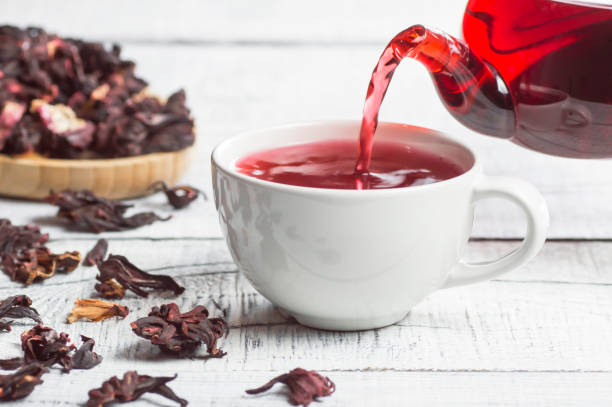
Hibiscus Tea 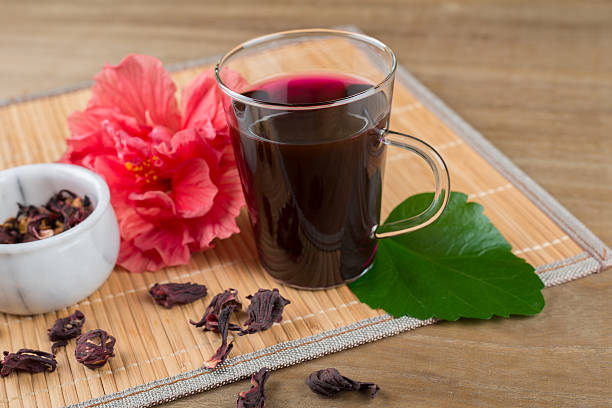
Hibiscus Tea -
Echinacea tea is a well-known treatment for preventing and shortening the common cold. Evidence suggests that echinacea may help improve the immune system, allowing the body to fight against viruses or diseases. Many studies have shown that echinacea can reduce the duration of a common cold, diminish the intensity of its symptoms, and even prevent it. However, the findings are contradictory, and the majority of the research was poorly performed. This makes determines whether favorable outcomes are attributable to echinacea or random chance challenge.
As a result, it's impossible to tell for certain if taking echinacea will assist with the common cold. If you do catch a cold, this warm herbal tea may help relieve your sore throat or clear out your congested nose.
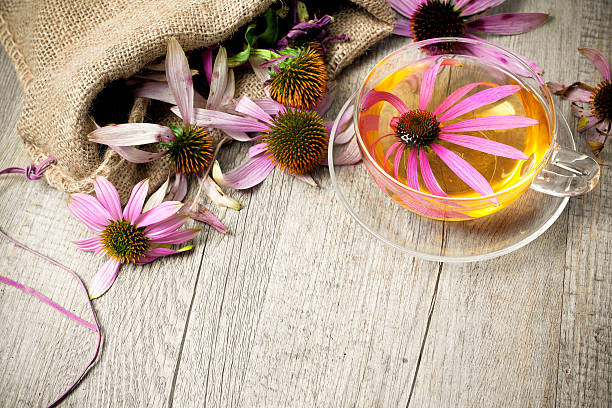
Echinacea Tea 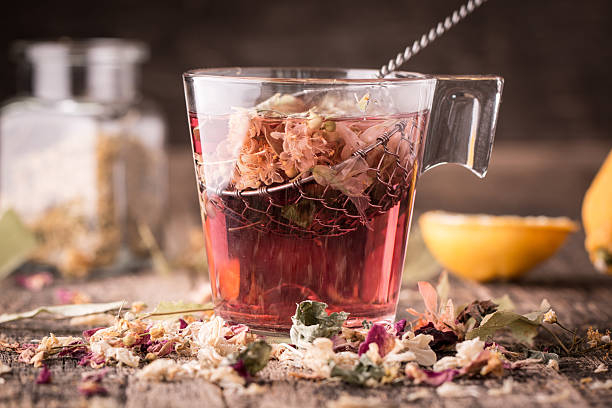
Echinacea Tea -
Rooibos is a kind of herbal tea native to South Africa. It is produced from the rooibos or red bush plant's leaves. South Africans have traditionally utilized it for medical purposes, although a scientific study on the subject is limited. Despite this, a few animal and human research have been carried out. So far, studies have not demonstrated that it is useful for allergies or kidney stones. However, one study found that rooibos tea may be beneficial to bone health. According to one test-tube research, rooibos tea, along with green and black tea, may activate the cells involved in bone formation and density.
The teas also reduced inflammation and cell toxicity indicators, according to the same research. The researchers hypothesized that this is why drinking tea is linked to better bone density. Furthermore, early research suggests that rooibos tea may help avoid heart disease. According to one research, rooibos tea inhibits an enzyme that causes blood vessels to tighten in the same way as a popular blood pressure drug does. Another study discovered that consuming six cups of rooibos tea daily for six weeks reduced "bad" LDL cholesterol and fat levels while boosting "good" HDL cholesterol.
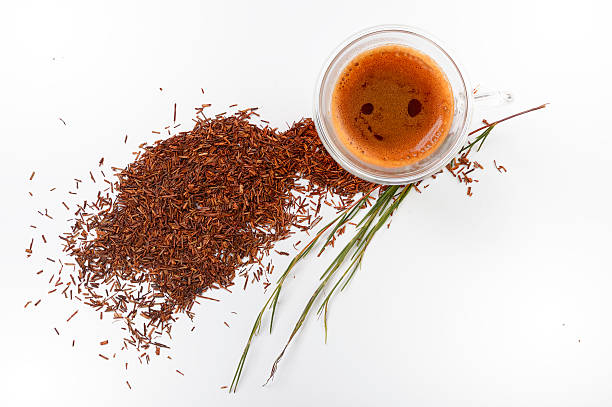
Rooibos Tea 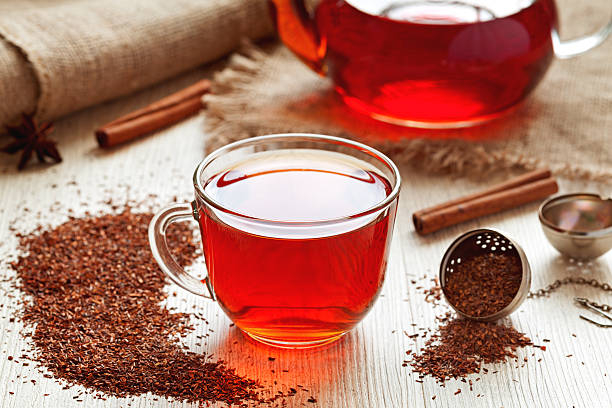
Rooibos Tea -
Sage tea is widely recognized for its therapeutic capabilities, and scientific research is beginning to back up numerous of its health advantages, particularly those related to brain function. A variety of test-tube, animal, and human studies have demonstrated that sage is helpful for cognitive function and may be effective against the effects of Alzheimer's disease plaques. Although the research had limitations, two investigations on oral sage drops or sage oil indicated improvements in the cognitive performance of patients with Alzheimer's disease.
Furthermore, sage appears to provide cognitive advantages for healthy people. A number of studies revealed that taking one of many distinct forms of sage extract improved mood, mental function, and memory in healthy individuals. Furthermore, one tiny human study discovered that sage tea enhanced blood cholesterol levels, while another rodents discovered that sage tea protected against colon cancer growth. Sage tea looks to be a healthy option, with possible advantages for cognitive health as well as heart and intestinal health. More research is needed to learn more about these consequences.
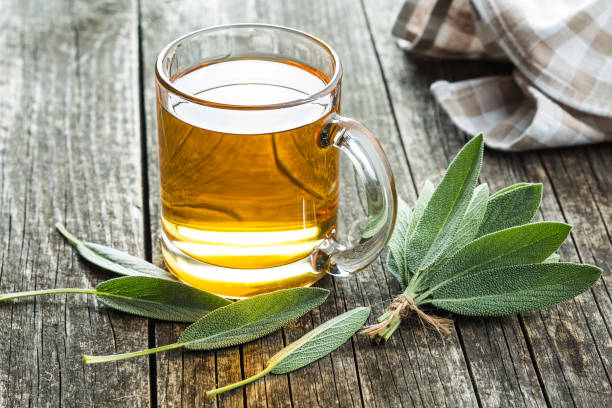
Sage Tea 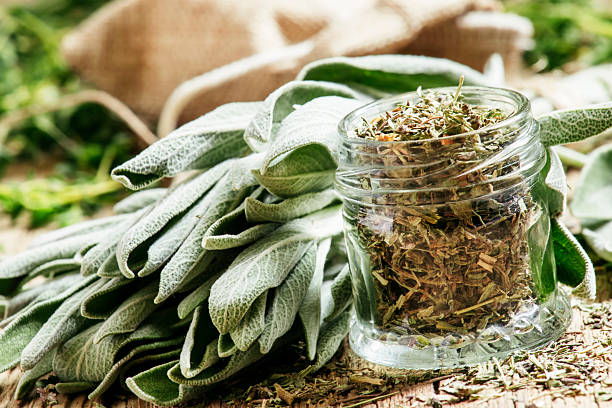
Sage Tea -
Lemon balm tea has a mild, lemony flavor and appears to be beneficial to one's health. Tiny research of 28 persons who drank either barley tea or lemon balm tea for six weeks found that the lemon balm tea group had increased artery flexibility. Arterial stiffness is thought to be a risk factor for heart disease, stroke, and cognitive impairment. In the same study, individuals who drank lemon balm tea had higher skin elasticity, which usually declines with age. The study, however, was of poor quality. Another small research among radiology employees discovered that drinking lemon balm tea twice a day for one month enhanced the body's natural antioxidant enzymes, which help preserve cells and DNA from oxidative damage.
As a consequence, participants' indicators of lipid and DNA damage improved. Preliminary data suggests that lemon balm may help with elevated blood lipid levels. A number of research have also found that lemon balm improves mood and mental function. Two trials with a total of 20 individuals looked at the effects of different doses of lemon balm extract. They discovered enhancements in both serenity and memory. Another small study discovered that lemon balm extract reduced stress and improved arithmetic processing abilities. Finally, in another small trial, lemon balm tea was found to lessen the frequency of heart palpitations and anxiety. Lemon balm tea has a variety of possible health advantages and would be an excellent addition to any herbal tea collection.
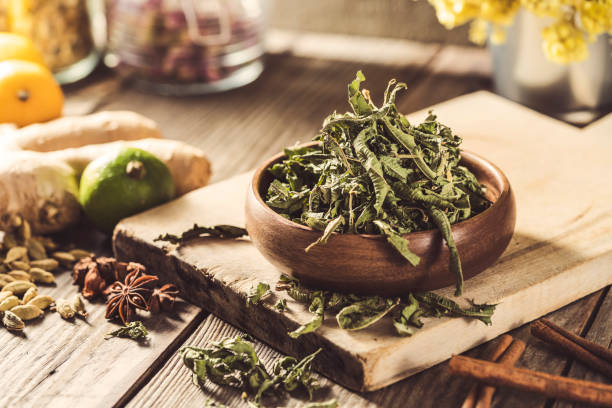
Lemon Balm Tea 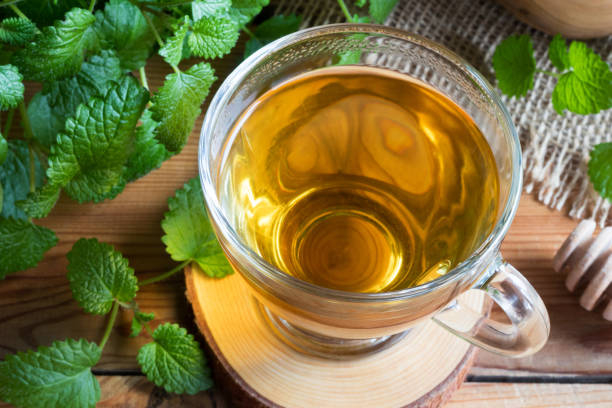
Lemon Balm Tea -
Rose hip tea is prepared from the rose plant's fruit. It contains a lot of vitamin C and other useful plant chemicals. In addition to the lipids contained in rose hips, these plant components have anti-inflammatory benefits. Several studies have been conducted to investigate the efficacy of rose hip powder to decrease inflammation in persons suffering from rheumatoid arthritis and osteoarthritis. Many of these trials discovered that it was helpful in reducing inflammation and its associated symptoms, such as pain.
Rose hips may also help with weight loss; a 12-week trial of 32 overweight adults revealed that consuming rose hip extract resulted in lower BMI and abdominal fat. Rose hip's anti-inflammatory and antioxidant properties may potentially aid in the prevention of skin aging. According to one early study, consuming rose hip powder for eight weeks decreased the depth of wrinkles around the eyes and enhanced the hydration and flexibility of the face's skin. These qualities may provide additional health advantages, however, further research is needed to validate these effects and discover any new ones.
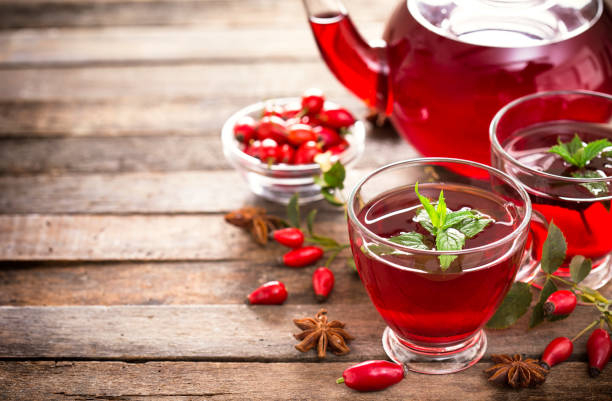
Rose Hip Tea 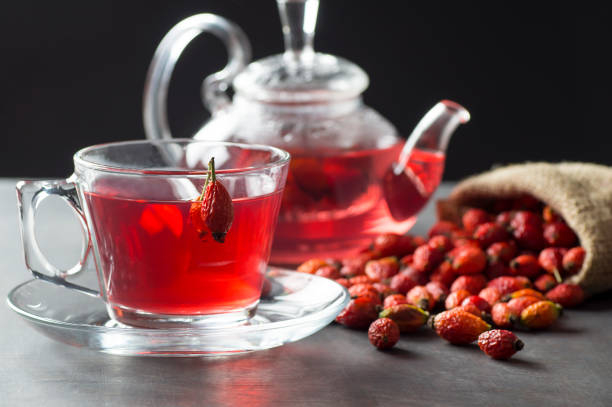
Rose Hip Tea -
Passionflower tea is made from the leaves, stems, and flowers of the passionflower plant. Passionflower tea has historically been used to ease anxiety and improve sleep, and research has begun to back up these claims. One research, for example, discovered that consuming passionflower tea for a week dramatically improved sleep quality ratings. Furthermore, passionflower was proven to be beneficial at reducing anxiety in two human tests. In fact, one of these researchers discovered that passionflower was just as effective as an anxiety medicine.
Another study discovered that when taken in combination with clonidine, the medicine often used for opioid detoxification therapy, passionflower helped reduce the mental symptoms of opioid withdrawal, such as anxiety, irritability, and agitation. When it comes to reducing anxiety and encouraging relaxation, passionflower tea appears to be an excellent choice.
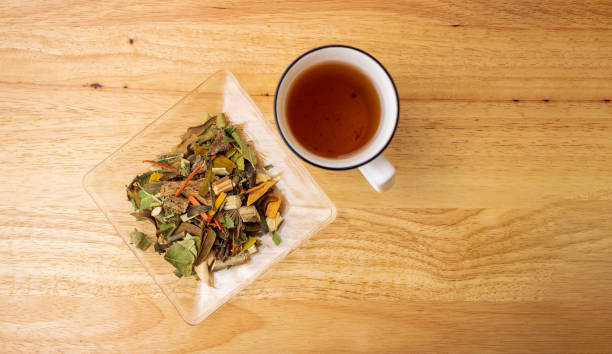
Passionflower Tea 
Passionflower Tea














